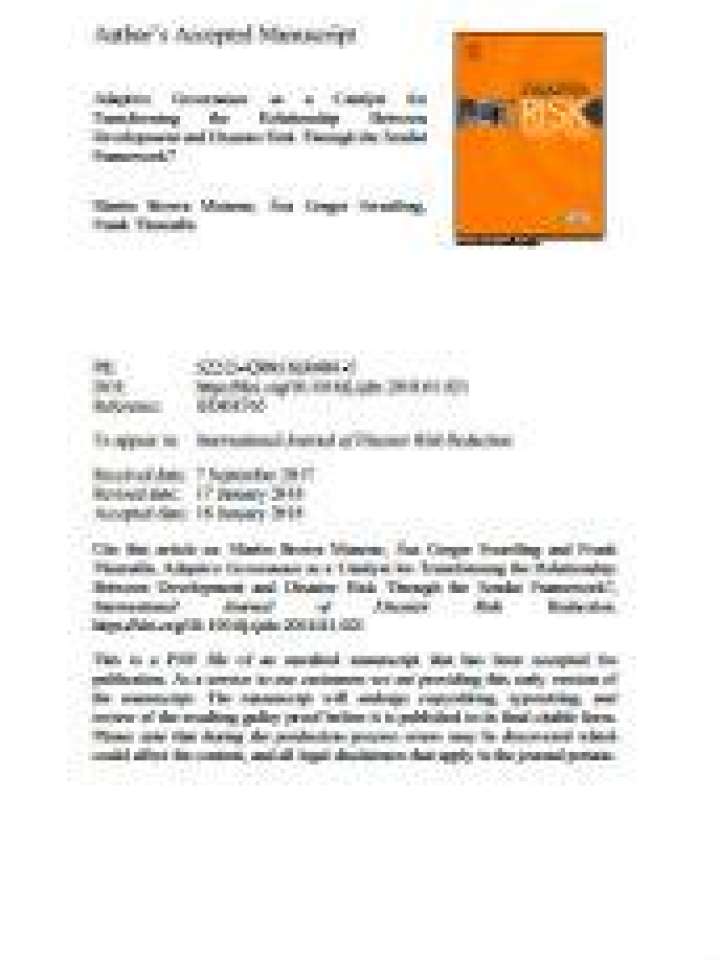Adaptive governance as a catalyst for transforming the relationship between development and disaster risk through the Sendai Framework?
This paper presents evidence of adaptive governance (AG) in the articulation of the Sendai Framework and explores its potential as a ‘non-traditional’ approach to disaster risk reduction (DRR) in tackling the challenges of complex social-ecological systems (SES) and multi-level socioeconomic, cultural and political factors and processes. Taking an AG lens, this paper analyses the prevalence of AG characteristics and determines which of the Sendai Framework's components would require an AG approach to facilitate a transformative agenda for DRR. It also identifies opportunities for employing an AG approach beyond what is already articulated to further enhance disaster resilience and to foster equitable, resilient and sustainable development.
The findings indicate significant references to AG in the Sendai Framework, and this paper posits that the Sendai Framework could indeed be an important “window of opportunity” for transforming DRR through AG. The paper concludes by discussing the challenges that must be overcome for AG to provide practical solutions for the urgent transformations required in DRR, and by calling for further research to identify the spaces and pathways through which deliberate transformations might occur.
The implementation of the Sendai Framework for Disaster Risk Reduction requires non-traditional management and governance approaches for substantial reduction of disaster losses to occur. AG has been identified as a mechanism through which to fundamentally change the relationship between development and disaster risk, with potentially far-reaching implications for science, policy and practice. At its core are collaboration, multilevel collective action, and continuous learning for building knowledge and effective SES management.
Explore further
